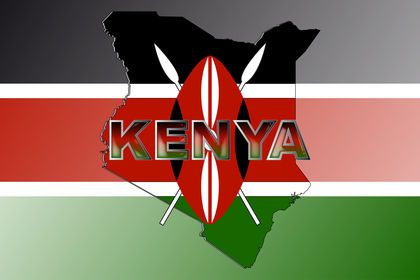Kenya - Economic development

Central to Kenyan government planning is a continuing expansion of the level of exports and diversification of products. Moreover, Kenya has sought the orderly introduction of large numbers of African farmers into former European agricultural areas. With the goal of full economic independence, the government continues to pursue Africanization of the private sector, particularly in commerce.
Kenya continues to assist private industry by tariff structures that permit the import of raw materials duty-free or at low rates; allow rebates or suspension of customs duties under certain conditions; and establish protective customs barriers. The 1979-83 development plan, Kenya's fourth, had as its main objective the alleviation of rural poverty. The 1984–88 development plan also emphasized the rural sector in calling for an annual real GDP growth of 4.9%.
Kenya has long depended on external assistance for development financing, but the extent of that dependence has varied with domestic conditions. Whereas in the mid-1960s Kenya depended on external sources for 82% of its total development resources, by the early 1970s the proportion had fallen to only 45%. The late 1970s and 1980s brought renewed reliance on external loans, as the proportion of foreign financing needed to cover the annual government budget deficit rose from 28% in 1978–79 to 67% in 1981–82 and an estimated 89% in 1985–86.
Development in Kenya now depends on the private sector and on foreign and domestic investment as the parastatal sector is dismantled. Foreign exchange earnings were key to the sixth development plan (1989–93). Because of government mismanagement of funds during the period between 1996 and 1999, most development agencies (including the IMF and World Bank) refused to extend loans and gave up on structural reform programs. The government initiated its own Economic Recovery Strategy in 1999, to increase public sector management reliability, but there were doubts as to the effectiveness of the plan.
In 2000, the IMF renewed lending, in the amount of a three-year $193 million Poverty Reduction and Growth Facility (PRGF) Arrangement, which was further augmented due to the impact of severe drought conditions. An anti-corruption authority set up by the government was declared unconstitutional in December 2000, and other Kenyan reforms stalled. The IMF and World Bank once again suspended their programs. In July 2003, the IMF indicated it would resume lending to Kenya, as the Fund was encouraged by the country's efforts to fight corruption and promote good governance.